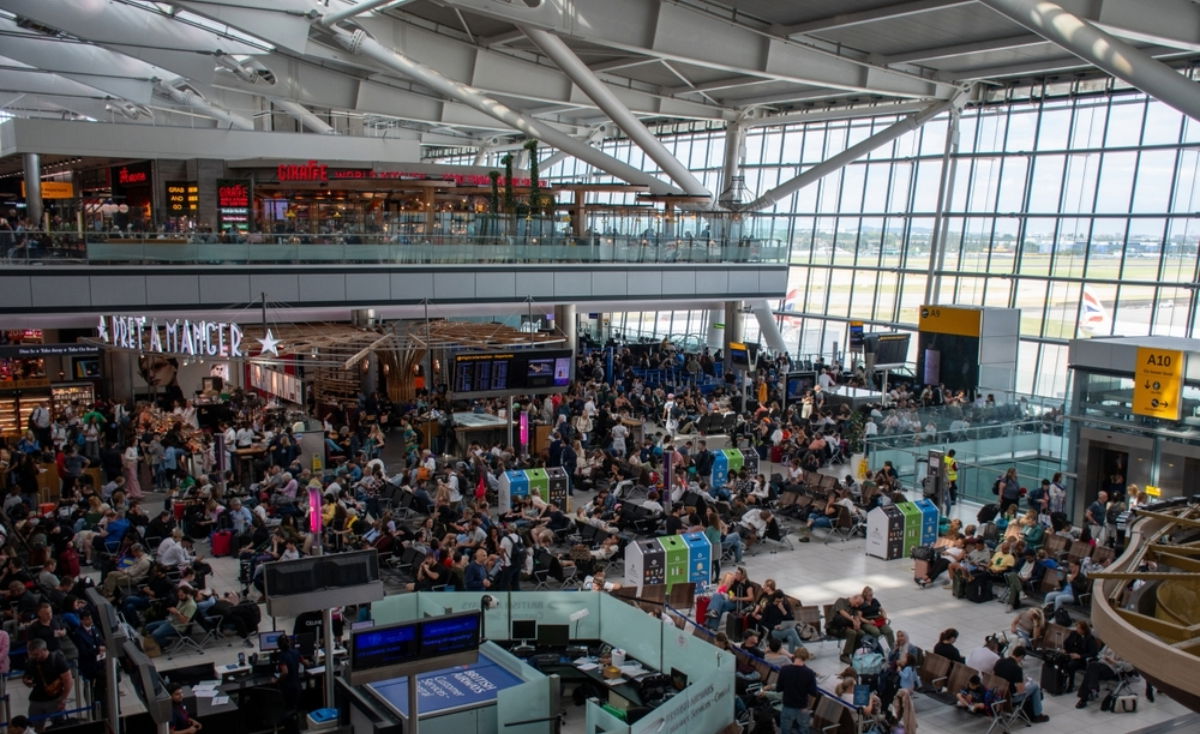Jobs
Smithfield meat market to close for good after relocation plans voted down

London’s historic Smithfield meat market is to close for good after the City of London Corporation voted to pull out of plans to relocate it and Billingsgate fish market to Dagenham.
The corporation, which owns and operates the central London site of the centuries-old market, had earlier this month put on hold relocation plans to a new £1bn site in Dagenham, east London, to review the “financial sustainability” of the planned move.
The court of common council, the main decision-making body for the corporation, voted on Tuesday to pull out of running the sites.
A market has existed around the Smithfield site for more than 800 years. The corporation was given the right to run it and other wholesale food markets in 1327 by Edward III.
The current market site was built in the 1860s and opened in 1868. It was designed by the architect Horace Jones, who also designed Billingsgate when it was redeveloped in the 19th century. The UK’s largest inland fish market was moved to its current site in Canary Wharf in 1982.
The corporation said it will provide financial compensation to market traders, who will be able to continue their operations at the markets until at least 2028. Compensation could total more than £300m, according to the Times.
The authority is said to want to turn the Smithfield site into a mixed-use cultural development alongside the London Museum, which is in the process of relocating to part of the Smithfield site where the poultry market was. There are proposals to transform the land of the current Billingsgate site for a mixed-use housing scheme.
Announcing the decision, the corporation said it was “actively supporting traders to identify suitable new sites” and they can continue their operations at Smithfield and Billingsgate until at least 2028.
It added that its decision reflects a “careful balance between respecting the history of Smithfield and Billingsgate markets and managing resources for this project responsibly”.
Project costs had risen owing to a number of external factors, including inflation and the increasing cost of construction that have made the move unaffordable, it said.
Both Smithfield and Billingsgate markets are governed by acts of parliament, effectively fixing the markets to the existing sites and imposing certain rights, restrictions and obligations as to the use of the land. A bill, which will be deposited in parliament on Wednesday, is required to repeal that legislation, and enable the land of the existing sites to be used for other purposes.
Chris Hayward, the corporation’s policy chair, said it was “a positive new chapter for Smithfield and Billingsgate markets” and the decision “empowers traders to build a sustainable future in premises that align with their long-term business goals”.
“By stepping back from direct market operations, we will help to create opportunities for these businesses to thrive independently. We’ve worked closely with the traders and thank them for their input and understanding.
“We’re committed to making sure they have the financial support and guidance they need to transition seamlessly and successfully to new locations.”
The Times reported that three king’s counsel barristers, who sit on the 100-strong court, had written to the corporation’s “town clerk” warning that the private vote could be “unlawful” because a study into the importance of the markets to London’s food supply, demanded by the court this year, has not yet been produced. The corporation told the Times that its own lawyers were “satisfied” with the legality of the vote.
Meanwhile, Henry Pollard, the chair of the markets committee, had written to his court colleagues warning that “the process here is wrong”, criticising the lack of a food security report and warning that the additional compensation to the traders – “an unquantified amount [of] over £300m” – could be a misuse of public funds, it was reported.
Dominic Twomey, the leader of Barking and Dagenham council, said: “While this is disappointing news, we understand the financial pressures that key investment projects are facing with soaring inflation in recent years. We are committed to continue working with the City of London Corporation to unlock the huge potential of the Dagenham dock site to bring new employment uses and high quality jobs for local people.”
The corporation – which is one of the country’s wealthiest local authorities but has its own financial pressures – has reportedly already spent £308m on the markets move, including a £115m compensation payment to traders in Smithfield’s poultry market which shut last year.










